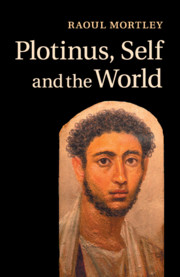Book contents
- Frontmatter
- Contents
- Preface
- Introduction
- 1 The individuated self and memory
- 2 Memory and forgetting
- 3 Ignorance, love and play
- 4 Plotinus’ Eros
- 5 The self: ‘and we too are kings’
- 6 Being and having
- 7 Self-knowledge
- 8 Art and the seduction of beauty
- 9 Face, image and the self
- Conclusion
- Bibliography
- Index
- References
6 - Being and having
Published online by Cambridge University Press: 05 October 2014
- Frontmatter
- Contents
- Preface
- Introduction
- 1 The individuated self and memory
- 2 Memory and forgetting
- 3 Ignorance, love and play
- 4 Plotinus’ Eros
- 5 The self: ‘and we too are kings’
- 6 Being and having
- 7 Self-knowledge
- 8 Art and the seduction of beauty
- 9 Face, image and the self
- Conclusion
- Bibliography
- Index
- References
Summary
Being and having in Plotinus are closely linked to ideas about continuity and nearness: between self and essence there is no absolute gap. We are rather dealing with a structure which accentuates proximity. The self exists in a familiar world, which is by nature close. The theme of nearness is an interesting byway in the history of philosophy. In the thought of Heidegger, for example, there emerges from time to time a kind of emphasis on familiarity: the sense that the real is not foreign and thus that the self exists in a world which is close and closely adapted to it; that it lives comfortably in its environment. There is a sense of this in Plotinus, as entities move towards their own reality.
Having, or possession, is important to Plotinus and he conducts an internal dialogue over the issue, particularly in III.8(30). There is a kind of having which involves satiety, but which is not drunk with the experience of this possession: the distinction is made in the exegesis of the story of love in the Symposium. In passing, Plotinus notes that the nectar with which Plenty has become inebriated in the allegory must come from outside. Inebriation represents the infilling of the lower level from the higher, in the case of the principle which has fallen from a higher level, and that kind of possession of something, or infilling, is likened to drunkenness. This is a having which comes from outside and in so doing fills a void. But there is another form of possession which is more perfect, which consists of simple completeness: ‘Intellect possesses itself in satiety, not in drunkenness’.
- Type
- Chapter
- Information
- Plotinus, Self and the World , pp. 79 - 93Publisher: Cambridge University PressPrint publication year: 2013



